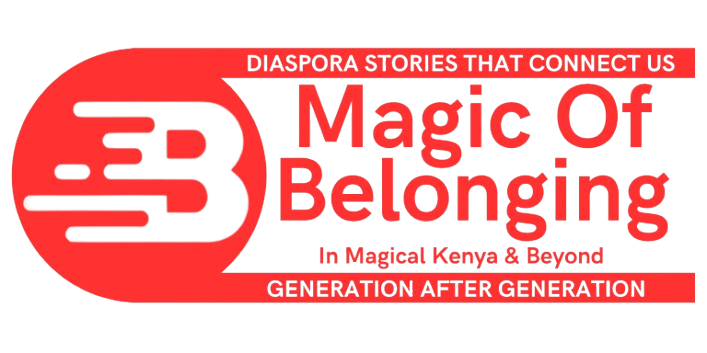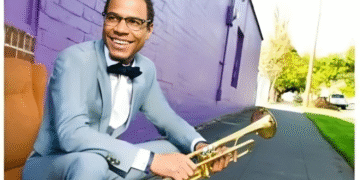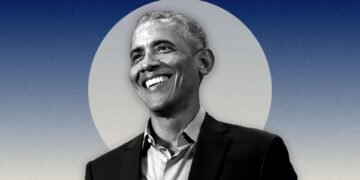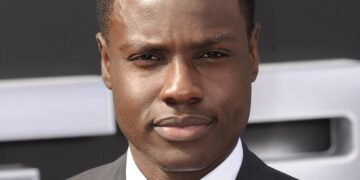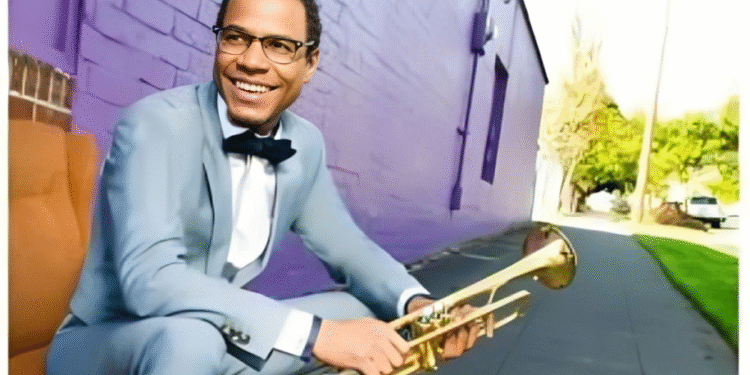Long before his trumpet rang out across Grammy stages and global stadiums, Owuor Arunga was just a barefoot boy in Kisumu, racing tires down dusty roads, the scent of chapati in the air and the static hum of Bob Marley on cassette whispering, “Africa, unite.”
It wasn’t the grandeur of Carnegie Hall or the glitter of Hollywood that birthed his music. It was Lake Victoria’s gentle splash, the hiss of Omo soap bubbles, and the soulful chaos of a city that has always pulsed with understated genius.
From those unpaved beginnings, Owuor has crafted something extraordinary: a life in music that spans continents and a message that echoes with belonging, identity, and return.
Kisumu’s Melody: The Boy, the Dream, and the Trumpet
Owuor’s first brush with destiny came not from a stage, but a screen. A Tusker commercial—just a trumpeter, a tilted hat, Brubeck’s “Take Five”—lit something inside him.
“It was the coolest thing ever,” he says, eyes alight. “I wanted to be that.”

Then came Michael Jackson’s “Thriller.” Not just the music, but the mythology. So obsessed was young Owuor that, in 1993, his family uprooted from Kisumu to Seattle, following a boy’s dream to see “MJ statues.”
The move wasn’t just geographic. It was generational. It was the beginning of a journey that would thread Kenyan soul through the heart of American jazz, hip-hop, and global pop culture.
In his grandmother’s Seattle home, he found an old trumpet—brass, battered, waiting.
“I picked it up,” he says simply, “and I never put it down.”
Jazz Baptism: Seattle to New York and the Birth of the Pied Piper
Seattle gave him a soundtrack, but New York gave him fire.
After high school at Garfield—alma mater to Quincy Jones and Jimi Hendrix—Owuor moved to NYC to study jazz at The New School. It was there, in Harlem’s smoky clubs and Brooklyn’s basement jams, that he found his voice.
“That’s the real Grammy,” he says. “Giving kids in Kisumu the mic.”
Jazz elders like Olu Dara (Nas’s father) whispered wisdom into his ears. “Don’t lose that feeling,” Dara told him. Saxophonist Ahmed Abdullah brought him into the orbit of the mystical Sun Ra, whose cosmic jazz theology cracked open Owuor’s imagination.
From those days, he emerged not just as a trumpeter—but as “The Pied Piper to the Universe.” A conjurer of tone. A cosmic griot. A man whose music could make crowds move and spirits rise.
A Reunion, a Reinvention: Macklemore and The Heist
Then, one day in 2009, an old high school classmate came calling.
Ben Haggerty, now better known as Macklemore, was fresh out of rehab, reassembling his life and his band. He needed a sound. A feeling. A trumpet that could speak. And he remembered Owuor.
What followed was magic.
In dim-lit studios and 4 a.m. sessions, the two rekindled a bond that had begun in the Garfield hallways. They poured their pain, humor, and vision into the album that would become “The Heist.”
It was Owuor’s horn riff that lit up “Thrift Shop.” His trumpet that wove soul into verses about fur coats and identity. The album exploded, winning four Grammy Awards in 2014, including Best New Artist.
And night after night, in front of crowds of 60,000, Macklemore would lean into the mic and say: “All the way from Kisumu, Kenya… Owuor Arunga!” The crowd roared. And Kisumu echoed back.
The Return: Turning Fame into Fuel for Home
Fame didn’t change Owuor. It clarified him.
“I’m not from some forgotten village,” he says proudly. “I’m from Kisumu. The Millennium City. We’re one of the flyest places on Earth.”
With that spirit, he became Global Ambassador for One Vibe Africa, a nonprofit based in Kisumu’s Manyatta estate. The mission? Empower youth through music and arts education. Not charity—connection.
With his partner Simon Okelo, he co-created the Madaraka Festival in Seattle—celebrating African creativity, business, and diaspora excellence. He brought stars like Sauti Sol to the stage, with proceeds building a recording studio back in Manyatta.
“That’s the real Grammy,” he says. “Giving kids in Kisumu the mic.”
Coke Studio, Black Pearls, and the New Pan-African Sound
Even as a global performer, Owuor’s heart beats to African rhythms. As a producer and performer for Coke Studio Africa, he curated genre-bending collaborations between artists from Mozambique to Tanzania, Ghana to Kenya.
He calls it “a new cultural moment. A paradigm shift.”
Through his company Arunga Music LLC, he releases jazz-fusion projects like “Black As They Come” and “Black Pearls”, blending everything from 70s rock to Afrobeat.
His studio gear may be analog. But his vision? Ultra-futuristic. He calls it “sonic alchemy.” And at the center is always the same boy—dusty feet, trumpet in hand, Kisumu in heart.
Legacy: The Trumpet as a Tool for Belonging
What does it mean to belong?
For Owuor Arunga, it’s not about passports or geography. It’s about sound. It’s the echo of Lake Victoria in a jazz solo. The glint of a brass horn under Nairobi sun. The smile of a young boy in Kisumu picking up a trumpet for the first time.
Owuor teaches that music is more than entertainment—it’s a spiritual technology. A way to carry memory. To claim identity. To come home.
As he mentors youth, collaborates across continents, and continues to perform, his message remains clear:
“The highest level of learning is sharing. It’s not just about playing notes—it’s about giving back. Always.”
Epilogue: The Note That Never Ends
From the shores of Lake Victoria to the roar of global arenas, Owuor Arunga’s trumpet tells a story of return.
It is the sound of Kisumu on the world stage. The bridge between generations, genres, and geographies. The melody of a child who dared to dream beyond borders—and came back with gifts to share.
He is not just a Grammy winner. He is not just Macklemore’s trumpeter. He is Kisumu’s son. The Pied Piper to the Universe. A maestro of belonging.
And every note he plays… carries us home.
